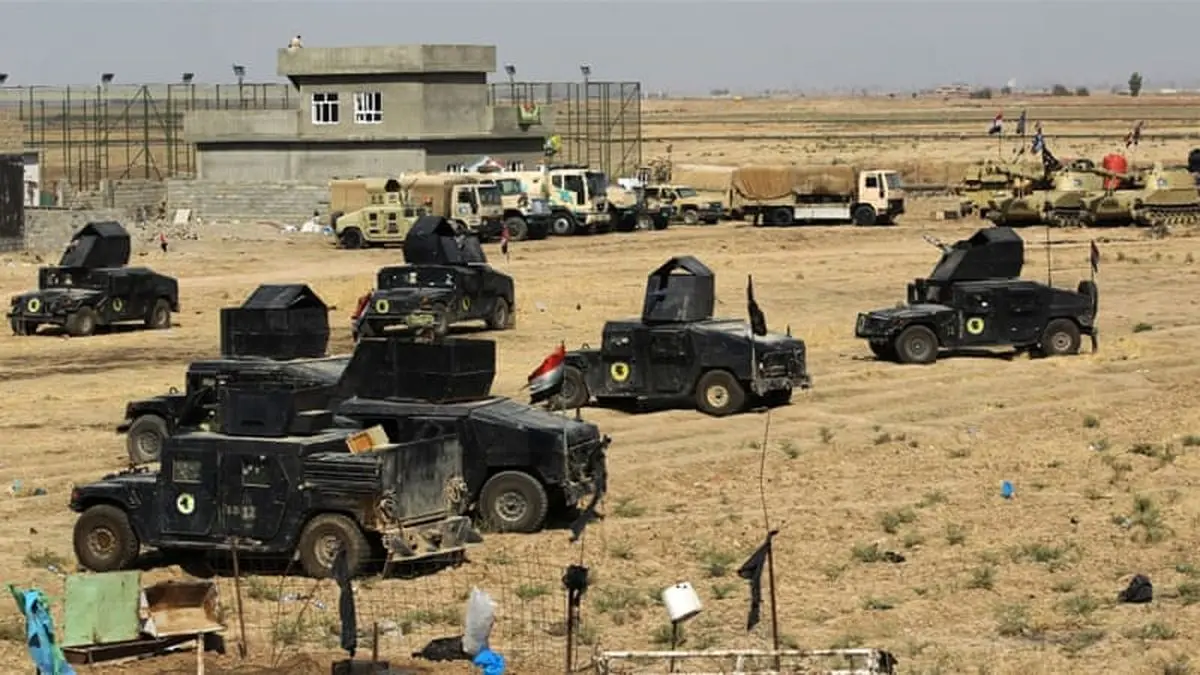Kurds Withdraw as Iraqi Forces Push Into Disputed Kirkuk

Kurdish forces were withdrawing from Kirkuk on Monday as Iraqi federal forces moved into the disputed city and seized oil fields and other infrastructure amid soaring tensions over last month's Kurdish vote for independence.
Kurdish officials accused the Iraqi army of carrying out a "major, multi-prong attack," and reported heavy clashes on the city's outskirts, but a spokesman for Iraq's state-backed militias said they encountered little resistance, ABC News reported.
By midday, federal forces had moved into several major oil fields north of the city, as well as its airport and an important military base, according to Iraqi commanders. Kurdish party headquarters inside Kirkuk had been abandoned.
The Iraqi army later said it has taken full control of Kirkuk following a major advance on Kurdish-held territories. The federal government in Baghdad and sources inside the city told Al Jazeera on Monday that Iraqi security forces had captured the governorate building in the center of Kirkuk.
The US, which has armed, trained and provided vital air support to both sides in their shared struggle against the self-styled Islamic State terrorist group, described Monday’s events as “coordinated movements, not attacks,” while bemoaning the dispute as a distraction against a common enemy. It said the limited exchange of fire was a “misunderstanding.”
Russian Foreign Minister Sergey Lavrov condemned the armed clashes between the Peshmerga units of Iraqi Kurdistan and the Iraqi army, saying the clashes conflict with the interests of the Iraqi people, TASS reported.
After initial reports of clashes in and around the city, it appeared by the afternoon as though the vastly outnumbered Kurdish forces, known as the Peshmerga, were pulling out with hardly a fight.
Local police stayed in place in Kirkuk as Prime Minister Haidar al-Abadi called on civil servants to remain at their posts to serve the city. “We have only acted to fulfill our constitutional duty and extend the federal authority and impose security and protect the national wealth in this city,” he said.
Still, thousands of civilians could be seen leaving with their belongings heading north along the country roads that lead to Iraq’s autonomous Kurdish region.
Kirkuk, home to some 1 million Arabs, Kurds, Turkmen and Christians, has been at the heart of a long-running dispute between the autonomous Kurdish region and the central government in Baghdad.
The Kurdistan Region Security Council said early Monday that the Peshmerga destroyed at least five US-supplied Humvees being used by Iraq’s state-sanctioned militias following the “unprovoked attack” south of the city.
Brig. Gen. Bahzad Ahmed, a spokesman for Kurdish forces, said federal forces seized an oil and gas company and other industrial areas south of Kirkuk in fighting with Kurdish forces that caused “lots of casualties,” without providing a specific figure.
“Goals Achieved”
A spokesman for Iraq’s state-sanctioned militias said they had “achieved all our goals” in retaking areas from Kurdish forces in and around the northern city. Ahmed al-Assadi said federal forces came under fire from “some rebels” after launching the operation early Monday and returned fire. He did not say whether they suffered any casualties.
He said federal forces have been deployed in the area of the K-1 military base, the Kirkuk airport and a number of oil fields and installations. The Iraqi military said it seized two major oil fields outside the city.
Tensions have soared since the Kurds held a non-binding referendum last month in which they voted for independence from Iraq. The central government, along with neighboring Turkey and Iran, as well as the United States, rejected the vote.
The central government and the autonomous Kurdish region have long been divided over the sharing of oil revenues and the fate of disputed territories like Kirkuk that are controlled by Kurdish forces but are outside their self-ruled region.
The Kurds assumed control of Kirkuk, in the heart of a major oil-producing region, in the summer of 2014, when IS militants swept across northern Iraq and the country’s armed forces crumbled.
END
